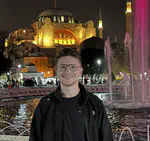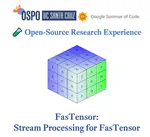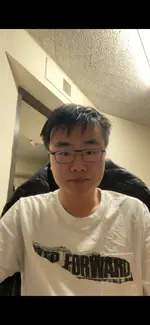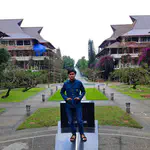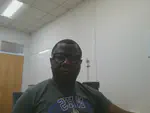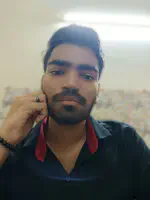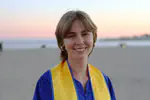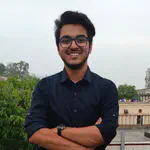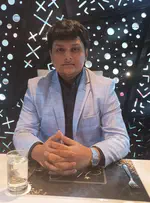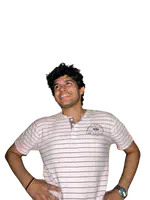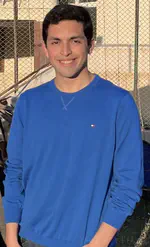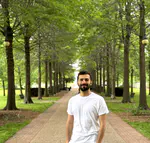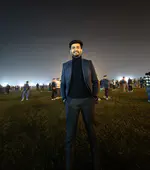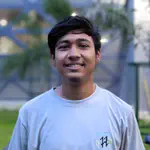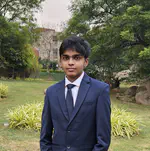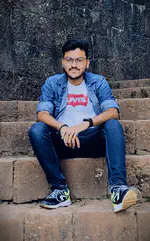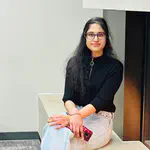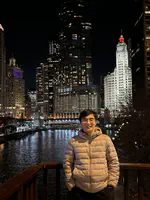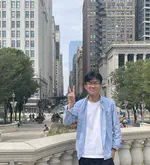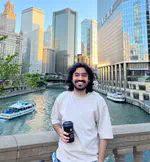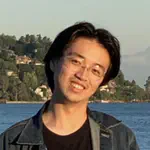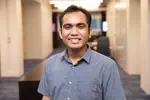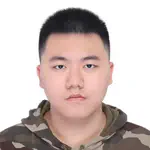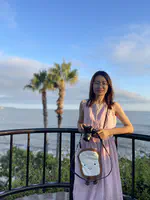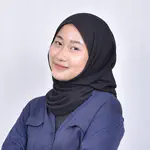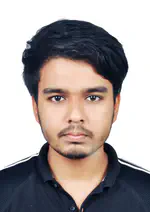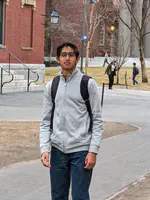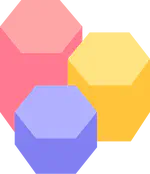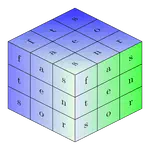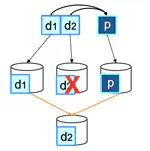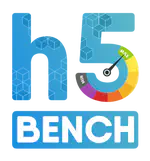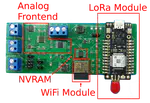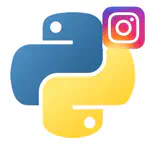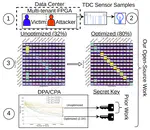2024 Open Source Research Experience
Matching summer students with research mentors and sponsors.
The Open Source Research Experience (OSRE) program provides support for undergraduate and graduate students contributing to open source projects and reproducible research efforts. With its dual focus on both increasing open source communities and making computational research efforts reproducible, the OSRE supports a wide variety of projects. In connection with the OSRE, the UCSC OSPO has taken part in the Google Summer of Code as a mentor organization and managed other sponsored programs such as the NSF funded Summer of Reproducibility. Information from past OSRE years can be found here: 2023 and 2022 (final 2022 reports). Mentors interested in participating in the OSRE (including for projects relevant to GSoC and the SoR) can post their project ideas for students to review. Project ideas are short abstracts that provide an overview of the tasks students will accomplish over the summer. See mentor page for more details. Interested Students or other newcomers to open source or reproducibility should review these project ideas and work with mentors to develop a full proposal. Student projects are due by April 4, 2024. See student information page for more details.
Table of Content: OSRE News | OSRE 2024 | For students | Student pages | For mentors | For sponsors | Timeline | Projects | Tag cloud | Mentors and Contributors

OSRE News
OSRE 2024
Open Source Research Experience
As last year OSRE 2024 will include mentors across multiple University of California campuses. Project ideas are listed below.
This year will again include the Summer of Reproducibility with research projects around producing and using reproducibility artifacts (see also ctuning.org and sysartifacts). Quite a few conferences are now offering awards for reproducibility artifacts. This encourages authors to produce reproducibility artifacts. There is great potential for using these artifacts not only for validating research results but also as teaching tools in classrooms and as baselines in research labs. Making producing and using reproducibility artifacts easier can significantly accelerate the rate of insights. The Summer of Reproducibility gives summer students the opportunity to help out in this cutting-edge effort and acquire valuable skills related to reproducibility.
For students
If you are interested, have a look at our guidelines for students, which includes timelines on when to contact mentors and proposal guidelines and expectations.
New projects for OSRE 2024 will be published by the end of February. Students can begin reaching out to mentors after February 22, 2024. Proposals are due April 2.
Students interested in applying to any of our projects should join our Slack channel before March 20. Email OSRE Admins to request an invitation.
You can also use our Gitter channel for general questions before reaching out to mentors. https://gitter.im/uc_ospo-osre/community
We typically support the work of undergraduate students; however graduate students may also apply to work on more advanced project ideas. Please check out the project ideas page and contact the mentor if you have questions.
Student pages
Go to 2023 student pages
Return to 2025 student pages
We are asking OSRE 2024 students and contributors to share their progress on a regular basis. We are excited to be able to highlight their work on this website and in events such as our Open Source Symposium. This blog post contains instructions on how to start highlighting contributor work with blog posts, also known as “student pages”. And here they are:
*For projects and mentors
The UCSC OSPO is looking for mentors to be part of our 2024 Open Source Research Experience Program (OSRE), which this year also includes a new initiative – the Summer of Reproducibility (SoR). Please read the FAQ for Mentors and, if interested in participating, the instructions for posting projects.
While typical OSRE supported projects require mentors who are connected to University of California-based open source projects, thanks to funding from the National Science Foundation, the Summer of Reproducibility allows us to also support US-based mentors interested in research projects related to the creation and usage of reproducibilty artifacts.
The goal of OSRE 2024 is to increase student capabilities in working in open source projects and creating reproducible artifacts, as well as add productive open source contributors and promote open source and reproducibility throughout the UC system and beyond.
The program team at UCSC OSPO values diversity and inclusion in all our projects. We invite mentors from groups traditionally excluded in computer science/open source communities to participate in this program.
Why should you be an OSRE mentor?
If you could use undergraduate research assistance over the summer with your on-going research, this is a great opportunity to get matched to top students. Like Google Summer of Code, the OSRE allows the mentors to choose the students they want to work with based on an interactive and iterative proposal process. The proposal process provides mentors the opportunity to select someone they want to work with who will benefit their project and research.
Who can be a mentor?
Your project needs to
- EITHER have at least one mentor affiliated with one of the University of California campuses or associated DOE national labs
- OR have some connection to producing or using reproducibility artifacts.
For University of California (UC) projects: Any UC-affiliated faculty, researchers or graduate students working on projects that are or will ultimately be part of an open source community/ecosystem.
For Summer of Reproducibility (SoR) projects: Researchers and faculty from any US-based organization looking to support the open source production or use of reproducibility artifacts.
For more details, please see the FAQ for Mentors and the instructions for posting projects.
For sponsors
Is your organization looking to better utilize open source and want to support projects that directly benefit your work?
Does your company want to strengthen the talent pipeline able to work on technologies essential to your organization’s success?
Do you want to collaborate with innovative open source projects being developed by University of California researchers?
The UC Open Source Research Experience (OSRE) offers your organization the chance to participate in projects that can help your development cycles run faster, benefit from wide collaborations, and help support workforce development in domains your organization needs.
To become a sponsor, fill out the Sponsorship Interest Form. You will be asked to indicate the level of sponsorship you would like to fund and the open source projects you are most interested in engaging with.
Benefits of sponsorship
- Collaborating on innovative project that are of strategic interest to your industry;
- Supporting the teaching of open source techniques to a wide range of student contributors;
- Interacting with the next generation of open source leaders and up and coming talent; and
- Recognition as an OSRE Sponsor at the Open Source Research Symposium (Fall 2024)
OSRE Sponsor Levels
| Level | Amount |
|---|---|
| Bronze | $3,750 (covers 50% of one student stipend for summer) |
| Silver | $7,500 (covers one student full-time for summer) |
| Gold | $15,000 (covers two students full-time for summer) |
Becoming a Sponsor
Becoming a sponsor is easy! Fill out the Sponsorship Interest Form or reach out to the OSRE Admins. Information requested by the form include: name of contact person, level of sponsorship, and projects you are most interested in (if applicable.) The OSRE Admins will follow up with next steps for finalizing the sponsorship process.
Timeline
Go to 2023 timeline
Return to 2025 timeline
| Feb 6 | Priority deadline for posting projects to be considered in the OSPO’s GSoC mentor organization application |
| Feb 22 | Deadline for mentors posting projects for OSRE/SoR consideration |
| Feb 22 | Accepted Mentor Organizations announced by GSoC - OSPO Accepted! |
| Feb 22 - Apr 2 | Mentors help candidates improving their applications, applications are submitted |
| Mar 20 | Deadline for students to join Slack channel (a student proposal requirement – do so as early as possible) |
| Apr 2 | Student proposal deadline |
| Apr 3 - 22 | Mentors evaluate and rank student proposals |
| Apr 24 | Student proposal rankings completed by Org Admins |
| May 1 | Accepted student proposals announced |
| May 2 - May 28 | Community Bonding / Onboarding |
| June - August* | OSRE participants work on projects / includes one mid-term evaluation |
| *Project start and end dates are flexible but need to be OK’d with Mentor and Org Admin |
2024 Projects
Go to 2023 projects
Return to 2025 projects


![[Final Report] Automated Reproducibility Checklist support within StatWrap](/report/osre24/ucsc/statwrap/20241102-adi/featured_huac74e17d91bae6f9cdcf7f5964bad2fa_931062_150x0_resize_q75_h2_lanczos_3.webp)

![[MidTerm] StatWrap: Automated Reproducibility Checklists Generation](/report/osre24/ucsc/statwrap/20240916-adi/featured_hu07ce79f6272925cefe9e923d495e6ddd_1667083_150x0_resize_q75_h2_lanczos.webp)
